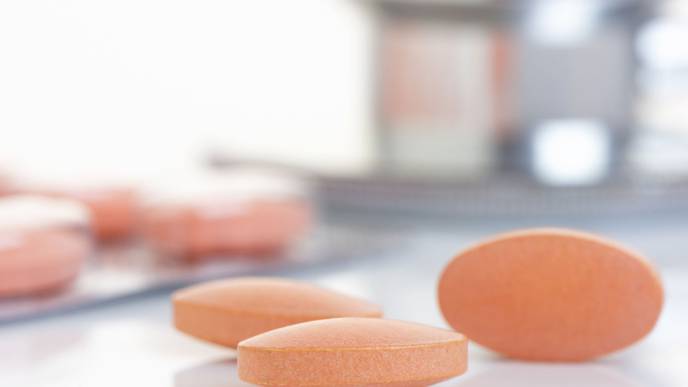- Bempedoic acid proved to be effective in lowering the risk of cardiac events along with statins, according to a new study.
- The medication could serve as an alternative to more commonly prescribed cholesterol medications.
- While these findings are promising and bempedoic acid can be beneficial, experts said that statins will continue to be the primary treatment method.
- Adopting healthy lifestyle habits can also help reduce cholesterol. These include eating a diet low in red meat and saturated fat, avoiding processed high-carbohydrate foods and exercising regularly.
To lower cholesterol levels, one of the most commonly prescribed treatments is statins.
Although statins can help reduce cholesterol, muscle and joint pain are some of the reported side effects.
As a result, researchers are starting to explore alternatives.
According to research being presented at the Endocrine Society’s annual meeting in Chicago, ENDO 2023, the medication bempedoic acid demonstrated effectiveness in reducing the risk of cardiac events along with statins.
Cholesterol-lowering medications like statins are crucial for reducing the risk of cardiovascular disease, the leading cause of death in the United States.
The researchers say bempedoic acid could become an alternative to medications for lowering bad cholesterol, but further studies are still needed.
For the analysis, researchers examined 13,970 statin-intolerant patients.
Results showed that bempedoic acid reduced LDL cholesterol levels by an average of 21% and lowered the risk of heart attack, stroke, and procedures to unblock heart blood vessels by 13%.
Compared to statins, the reduced risk level was similar to patients taking bempedoic acid.
“Many cardiologists and other health care providers can be encouraged by these results, that we now have a growing body of evidence for certain non-statin cholesterol-lowering medications also offering cardiovascular event risk reduction,” said Dr. Wesley Milks, a cardiologist at The Ohio State University Wexner Medical Center in Columbus.
“I was struck that the time-averaged LDL-C reduction was 21%, which was somewhat higher than the LDL-C lowering published from the earlier studies that led to the approval of bempedoic acid.”
Although these results are promising and bempedoic acid can be helpful, statins will continue to be the primary treatment method.
“Bempedoic acid, while useful, remains far from a first-line choice for cholesterol and cardiovascular risk reduction treatment,” Milks stated.
“Statins will remain the mainstay of this therapy due to the immense body of data in support of statin treatment on cardiovascular outcome reduction as well as the effectiveness of cholesterol-lowering, which can be less than a 50% reduction using the highest intensity statin-dose choices.”
PCSK9 inhibitors such as evolocumab and alirocumab can lower LDL-C by approximately 60% although require medication injection. Thus, 20-25% reduction using bempedoic acid is helpful but still modest compared to statins and PCSK9 inhibitors.
However, the oral administration of bempedoic acid, like ezetimibe, may play a role for statin-intolerant patients who are averse to injection medications, Milks added.
“The medication [bempedoic acid] is safe and effective and now has proven CVD (cardiovascular disease) risk reduction,” said Dr. Chip Lavie, medical director of cardiac rehabilitation and prevention at Ochsner Health.
“Statins are considerably better as they can reduce LDL by 50-60% and have greater event reduction due to the better LDL reduction. Typically, we use bempedoic acid in addition to statins and get a 17-18% additional reduction in LDL and if we use bempedoic acid combined with exetimide, we can get close to 40% additional LDL lowering,” Lavie noted.
Heart-healthy lifestyle habits include the following:
- Eat a diet low in red meat and saturated fat.
- Switching to the Mediterranean diet may be beneficial for your overall health, including your heart health.
- Restriction of processed carbohydrate-rich foods and beverages and focus on maximizing vegetable, fruit, and whole grain intake can also be helpful, Milks explained.
- Regular physical activity, ideally at least 150 minutes of accumulated moderate-intensity or greater aerobic activity per week, can also help lower cholesterol, Milks noted
Cholesterol is lowered by soluble fiber in the diet, as fiber can help trap and expel cholesterol from the gastrointestinal tract.
Some other medications can also be effective in lowering cholesterol.
“Estrogens reduce LDL by 10-15%. Ezetimide alone gets 15-20% additional reductions in LDL,” said Lavie. “The oldest meds, bile acid sequestrants and nicotinic acid and fibrates all get modest reductions in LDL , and the injectables (evolocomab, alirocomab, and inclisiran) get 45% to 65% reductions in LDL added to statins and the first 2 also have proven clinical event reductions ( I have served as consultant for these injectables as well).”
Bempedoic acid demonstrated effectiveness in reducing the risk of cardiac events along with statins. Study authors reported that this medication could potentially act as an alternative to more commonly prescribed cholesterol medications.
While bempedoic acid can be useful, experts said statins will remain the primary treatment method for cardiovascular issues.
To lower cholesterol, healthy lifestyle habits are beneficial. These include eating a diet low in red meat and saturated fat, avoiding processed high-carbohydrate foods and exercising on a regular basis.

Facebook Comments